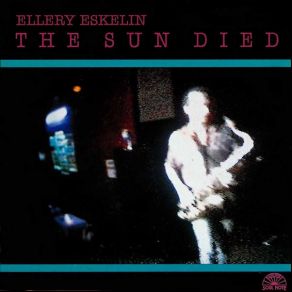The Sun Died
Download links and information about The Sun Died by Ellery Eskelin. This album was released in 1996 and it belongs to Jazz, Avant Garde Jazz genres. It contains 10 tracks with total duration of 52:07 minutes.

|
|
|---|---|
| Artist: | Ellery Eskelin |
| Release date: | 1996 |
| Genre: | Jazz, Avant Garde Jazz |
| Tracks: | 10 |
| Duration: | 52:07 |
| Buy it NOW at: | |
| Buy on iTunes $9.90 | |
Tracks
[Edit]| No. | Title | Length |
|---|---|---|
| 1. | Twistin' the Jug (featuring Marc Ribot, Kenny Wollesen) | 5:07 |
| 2. | The People's Choice (featuring Marc Ribot, Kenny Wollesen) | 6:39 |
| 3. | Canadian Sunset (featuring Marc Ribot, Kenny Wollesen) | 5:14 |
| 4. | Out of It (featuring Marc Ribot, Kenny Wollesen) | 2:34 |
| 5. | Seed Shack (featuring Marc Ribot, Kenny Wollesen) | 7:36 |
| 6. | Ca' Purange (jungle Soul) (featuring Marc Ribot, Kenny Wollesen) | 6:52 |
| 7. | The Sun Died (featuring Marc Ribot, Kenny Wollesen) | 6:40 |
| 8. | Jivin' Around (featuring Marc Ribot, Kenny Wollesen) | 3:31 |
| 9. | Precious Memories (featuring Marc Ribot, Kenny Wollesen) | 4:29 |
| 10. | The Light (featuring Marc Ribot, Kenny Wollesen) | 3:25 |
Details
[Edit]Eskelin gives the tough tenor tradition a downtown twist, playing a set of tunes by the likes of Harold Ousley, Gene Ammons, and Harold Vick, aided by a pair of punk jazz subversives: guitarist Marc Ribot and drummer Kenny Wollison. It's a frequently successful jaunt, although the music sometimes sounds like the engineer forgot to take the mute button off the bass channel during mixdown. Actually, as one glance at the personnel listings tells you, there is no bass player; the ultra-resourceful Ribot fills in the spaces where he can, but anyone familiar with the soul/funk/organ trio genre (meaning just about anyone who might consider buying this album) is bound to miss that low end. That said, Eskelin plays wonderfully; he's got a big, grainy sound and arrogant way of articulating that does justice to the extroverted tenorists to which he's paying tribute. On top of the traditional elements, Eskelin adds free jazz harmonies, David Murray-esque intervallic leaps, assymetrical phrasing, and every other kind of post-Coleman/Ayler/Coltrane saxophonic device to good ends. The music swings hard, thanks in large part to Wollison, whose uninhibited style gives the music an extra dose of nihilism. As for Ribot, if he didn't write the book on jazz nihilism, he was surely there when it was being proofread. With all due respect to Eskelin — who must've had a reason for it — there seems to be no good purpose in not having a bassist on the date. As good as the record is, this reviewer's ear just craves that missing element; with a good bass player, the record might have been perfect. As it is, it's merely excellent.